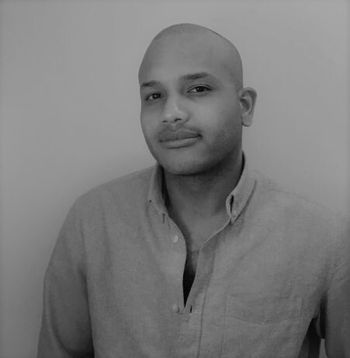Universities pushed debunked 1619 Project. Will they also teach the 1776 Report?
The 1776 Report called American colleges "hotbeds of anti-Americanism, libel, and censorship."
Vice Chair Dr. Carol Swain told Campus Reform that the report will alert Americans to the "revisionism of American history."
The 1776 Commission, a group of scholars appointed by former President Donald Trump in December to assess the state of American education, released The 1776 Report on Monday. Issued in the final days of the Trump administration, the 45-page-report called for a patriotic “restoration of American education” and sharply criticized American universities for becoming “hotbeds of Anti-Americanism, libel, and censorship.”
The commission’s publishing of the 1776 Report, which has already been called “racist” by CNN’s Megan Vazquez, marked another chapter in the struggle of how best to tell the story of Black slavery and America’s Founding.
Speaking to The Washington Post on Tuesday, American Historical Association executive director James Grossman called The 1776 Report “hack job” that is “not a work of history.”
Grossman also commented on the report’s publication to The New York Times, saying the commission published “myths, distortions, deliberate silences, and both blatant and subtle misreading of evidence to create a narrative and argument that few respectable professional historians…would consider plausible.”
[RELATED: Leftist bias infiltrates Christian universities]
Sarah Ruiz-Grossman of HuffPost said the report “excuses slavery” and “justifies the racist Three-Fifths Compromise.”
In an exclusive Campus Reform interview, 1776 Commission Vice Chair Carol Swain, called the comments of the commission’s critics an “ugly interpretation of something that should be received in a bipartisan fashion,” adding that they “[reflect] how far we as a nation have disintegrated.” That her colleagues in the world of academia would smear scholarship that was meant to “benefit our nation as a whole” is, she said, “unfortunate.”
Despite the project’s criticism, Swain said she hopes the 1776 Report will be “widely read” by Americans unwilling to “allow progressive media bosses to dissuade them from actually examining the report for themselves.”
One issue of interest to the American people, Swain said, is the “revisionism of American history and the move to teach our children that America is an evil country,” which the report described as trampling “honest scholarship and historical truth,” and shattering the “civic bonds that unite all Americans.”
The commissioners also reiterated the outgoing Trump administration’s concern about the prevalence of Critical Race Theory training, an ideology that, Swain said “demonizes White people or particularly White males, and does not bring any type of unity or harmony to the workplace or an educational institution.”
On the subject of higher education, the 1776 commissioners faulted colleges for telling America’s story “solely as one of oppression and victimhood rather than one of imperfection [and] unprecedented achievement toward freedom, happiness, and fairness for all.”
The ideas of leftists in the university have produced “deliberately destructive scholarship” responsible for causing “violence in our cities, suppression of free speech in our universities, and defamation of our treasured national statues and symbols,” the commissioners added.
Identity politics has hurt America too, the report alleged. Since the 1960s, the American left has chosen to “abandon the nondiscrimination and equal opportunity of colorblind civil rights in favor of ‘group rights’ and preferential treatment.”
For Swain, participating in the commission’s work was a reminder of America’s “frightening” political moment.
“I personally feel that the America of my youth –the America I have known all of my life –no longer exists,” she told Campus Reform yesterday. “I’ve never seen anything like today’s effort to stamp out dissenting voices.”
”The country,” she added, “reminds me more of a communist regime.”
Trump assembled the 1776 Commission in December as part of his administration’s offensive against the New York Times’ 1619 Project, a report that was criticized by historians from across the political spectrum for containing historically suspect claims about the role of slavery in America’s founding. The project’s primary author, Nikole Hannah-Jones, wrote, for example, that the ‘true’ founding of the United States happened not in 1776, but in 1619, when the first African slaves arrived in the New World.
The 1619 Project, said Gordon Wood, a Pulitzer Prize-winning historian of the American Revolution, was “so wrong in so many ways.” In a November 2019 interview, he highlighted Hannah-Jones’ claim that the American Revolution was fought to preserve slavery as a key point of error.
“[Nikole Hannah-Jones] claims the British were on a warpath against slavery and that rebellion was the only hope for American slavery,” Wood said, “I just couldn’t believe this.”
Another historian, Sean Wilentz of Princeton University, joined the chorus of 1619 critics on November 4, 2019, calling it out for its “cynicism” in remarks delivered at the Fourth Annual Philip Roth Lecture at the Newark Public Library. In a letter written to the editors of the New York Times, Wilentz, who supported the impeachment of Donald Trump, said the 1619 Project represented a “displacement of historical understanding by ideology.”
[RELATED: ‘Trying to forget history’? Auburn history prof advocates renaming buildings]
The critics critiqued 1619 to no avail, however.
Despite the forming of several scholarly projects aimed to dissuade educators from teaching it in public schools, by July of last year, the 1619 Project was featured in the curriculum of 4,500 schools. Elite schools such as Harvard University, New York University, and the University of Chicago have invited Hannah-Jones to discuss the 1619 Project on their campuses.
Asked whether universities would similarly teach the concepts outlined in the 1776 Report, Swain said, “it’s up to Joe Biden. The very fact that we were attacked so vigorously by the political left would suggest that they are trying to taint the commission’s report in such a way that would justify his eliminating it altogether.”

